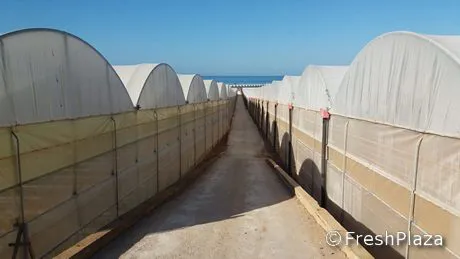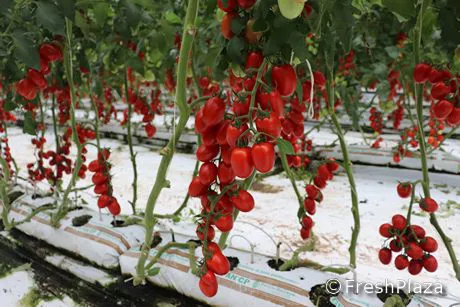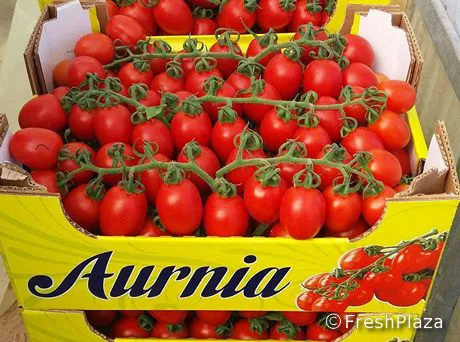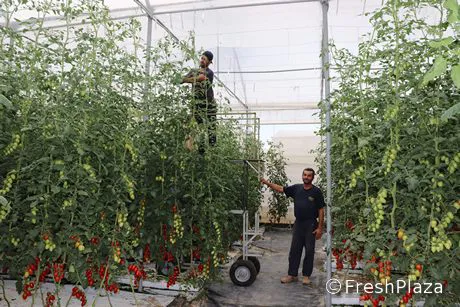The young, Italian horticulturist Rosario Aurnia has made a very meticulous working system for the farming of his tomatoes. Six hectares are mostly cultivated in mini plum tomatoes (70%), while the remainder is used for the datterino variety. The entire surface has been allocated for hydroponic cultivation on a coconut and perlite substrate.

The company is named after the owner’s family and is located close to Marina di Acate, a few meters away from the sea, right in the middle of the Sicilian horticultural area.

"The proximity to the sea makes this area very windy, thus lowering any mould-related risks. At the same time, the sun shines for over 300 days per year, facilitating the ripening of the tomatoes. Additionally, the slightly salty water here gives the product those organoleptic properties that make these tomatoes appreciated by every market", a proud Rosario explains.
Rosario continues: “We decided to adopt the soilless cultivation a few years ago, in order to lower the disease risk due to soil-borne plants. This attempt proved to be successful, as we have not this kind of problems anymore”

"The greenhouses are tall and the crops grow vertically. On one hand, this results in a more rational use of the surfaces. On the other hand, it allows a better ventilation of the plant, granting at the same time a better sun exposure – which is the trademark of Sicilian agriculture. The crop is of the long cycle type, hence it runs from late July to early May”.
 Rosario Aurnia
Rosario Aurnia
Aurnia continues, “We have been repeatedly praised for our goods. We have recently decided to start the direct marketing of our products in order to avoid all of those unbeneficial and unnecessary commercial steps. In this way, we can guarantee a better quality of the final product – as it gets to the supermarkets. Our targets are precisely those small chain markets that can give us greater economic satisfaction as their medium-high clients expect truly superior products like ours are.
The Aurnia company produces about 1200 tons of tomatoes per year and is GlobalGAP certified.
Info:
Azienda Agricola Aurnia![]()
Via Piano Torre 11
97011 Acate (RG)
Tel.: +39 360 240260
Email: [email protected]
